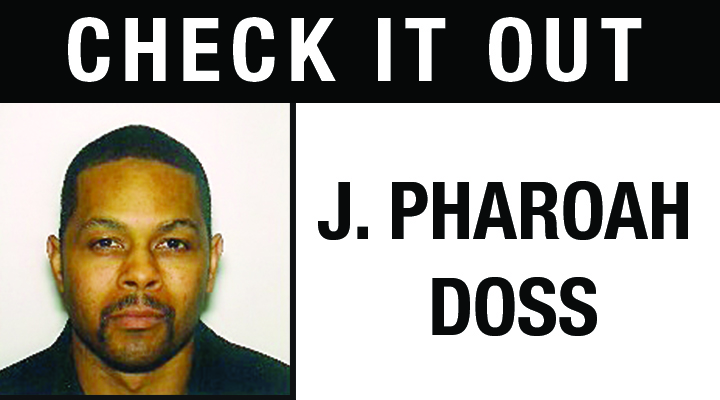by J. Pharoah Doss, For New Pittsburgh Courier
On Juneteenth, the news outlet Democracy Now! produced a holiday special. Their audience was treated to a replay of the keynote address delivered to the United Nations on the International Day of Remembrance of the Victims of Slavery and the Transatlantic Slave Trade in March.
The keynote speaker was no other than Pulitzer Prize-winning journalist Nikole Hannah-Jones. Hannah-Jones was born in 1976. Her father is African American and her mother is White of Czech and English descent.
Hannah-Jones revealed that her father was born in a shack on a cotton plantation in 1945 and her grandmother only had a 4th-grade education. Jones said her grandmother resisted Mississippi’s racial caste system by relocating north, so her children would not have to pick cotton their entire lives, and that the defining story of Black people in America is not slavery but Black people’s resistance to subjugation.
Hannah-Jones insisted that it wasn’t merely enlightenment ideas that brought slavery to an end but constant revolt from the enslaved. She highlighted how the people of the African diaspora resisted slavery at its inception, and, today, the descendants of slaves are resisting the systemic conditions that make them suffer the highest rates of poverty in the societies that once enslaved them.
Hannah-Jones concluded, “This is our global truth … There can be no atonement if there’s no repair. It is time – it is long past time – for reparations for the transatlantic slave trade and all the devastation that it has wrought, and all the devastation that it continues to reap.”

Well-meaning people are sympathetic to Hannah-Jones’s historical analysis and the plight of her father’s ancestors. However, there is a global truth from her mother’s Czech background that is never contemplated when reparations for slavery are discussed.
Fifteen years after Hanna-Jones’s father was born, Senator John F. Kennedy explained the global crisis of the 20th century during the presidential debate.
Kennedy told the nation: In the election of 1860, Abraham Lincoln said the question was whether this nation could exist half slave or half free. In the election of 1960, the question is whether the world will exist half slave or half free. Will the world move in the direction of freedom, the road we are taking, or will the world move in the direction of slavery?
Kennedy used the term slavery in reference to the totalitarian communist regimes that took over countries after World War II and deprived their citizens of liberty and economic prosperity.
In 1948 the Soviet-backed communist party seized power and took control of Czechoslovakia. Thousands fled the country to avoid living under totalitarianism, many escaped to the United States. During the same time period, Soviet-back communists took over Albania, Bulgaria, East Germany, Romania, Poland, and Hungry.
Andrew Grove (1936 -2016), the Hungarian-born co-founder of Intel Corporation, wrote in Swimming Across: A Memoir, “By the time I was twenty, I had lived through a Hungarian Fascist dictatorship, German military occupation, the Nazis’ ‘Final Solution, and the siege of Budapest by the Soviet Red Army … Many young people were killed; countless others were interned. Some two hundred thousand Hungarians escaped to the West. I was one of them.”
Outside of Europe, totalitarian communist regimes followed China’s lead and violently emerged in North Korea, Vietnam, Cambodia, and Laos.
Cheuang Kavan, a refugee from Laos, explained that under communism the people were forced to work in collective farms. But the crops went to Russia and China in exchange for weapons and warplanes, while the majority of the population starved. Many families escaped Laos into Thailand, but the Thai government didn’t allow refugees. We lived in a refugee camp for three years. The Thai government only gave us food three days a week, hoping the malnourishment would make us go back to Laos. In 1984, Laos finally allowed the United States and other countries to offer the refugees new beginnings.
The demand for reparations for slavery expects the descendants of those that escaped totalitarian communist regimes to set aside the horror of their past and make amends for atrocities their ancestors didn’t inflict.
If that’s social justice, then social justice is unjust.
